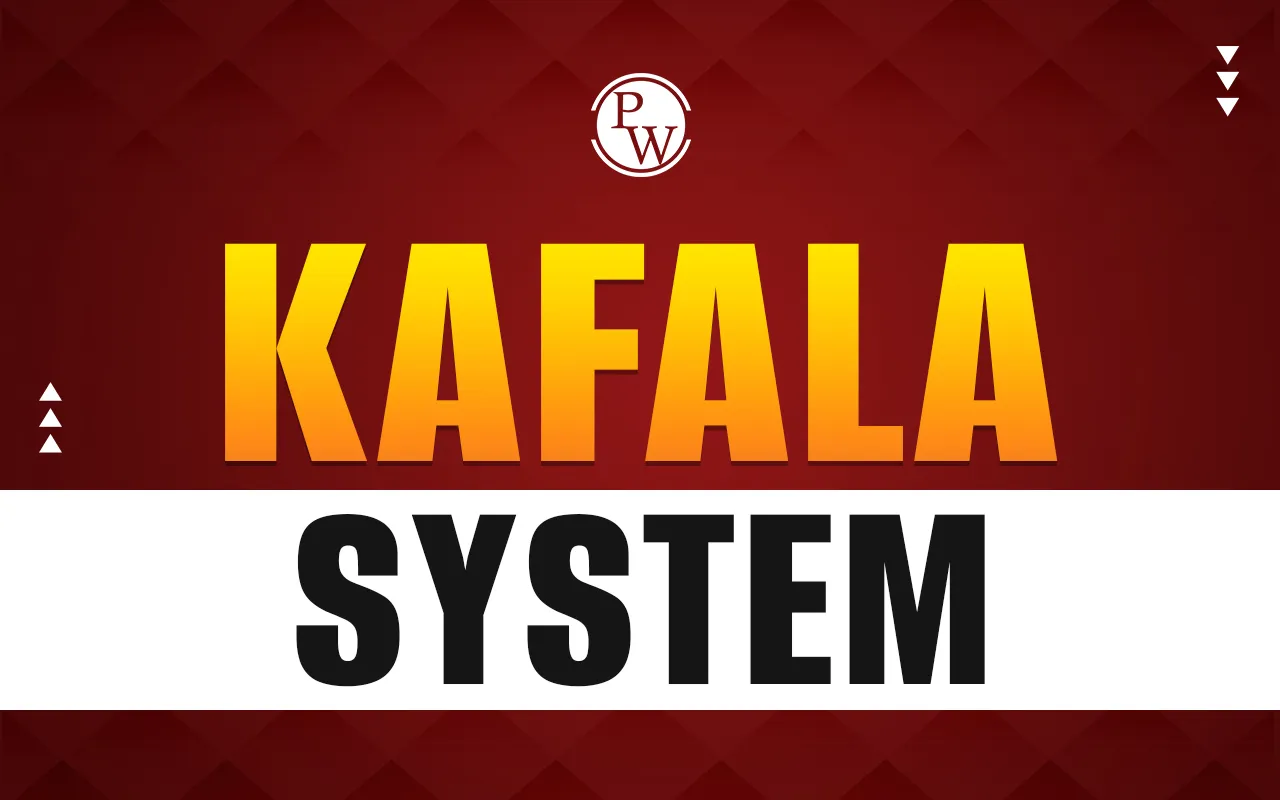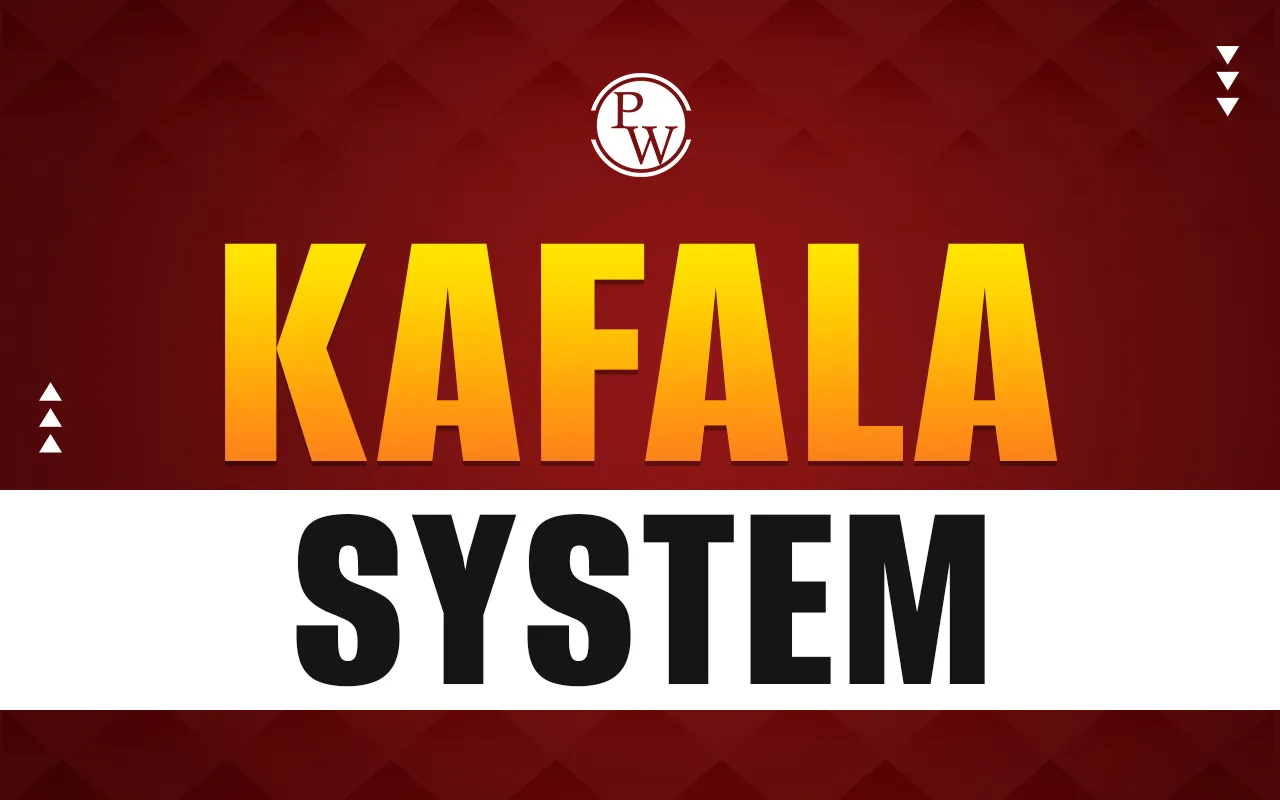

Kafala System: In a major relief for millions of migrant workers, Saudi Arabia has officially scrapped the Kafala System, a framework that controlled foreign workers’ lives and jobs for decades. The system required employees to rely completely on a local sponsor, usually their employer, for visas, job transfers, and even leaving country.
Critics often called it modern-day slavery because it allowed exploitation, unpaid wages, and restricted workers’ rights. Ending the Kafala System is a historic step that brings more independence, protection, and fair work conditions to foreign workers, including millions from India, Bangladesh, Nepal, and the Philippines, while aligning with Saudi Arabia’s broader Vision 2030 reforms.
Kafala System Highlights
Here’s a quick highlights to help students understand what the Kafala System was and how it affected workers:
|
Kafala System abolishment Saudi Arabia |
|
|
Purpose |
To sponsor-controlled visas and jobs for foreign workers |
|
Worker Restrictions |
Workers couldn’t change jobs, leave, or renew residence without sponsor approval |
|
Criticism |
Exploitation, unpaid wages, limited rights, passport confiscation |
|
Countries Practicing Earlier |
Saudi Arabia, Kuwait, Qatar, Oman, UAE (partial), Bahrain (abolished) |
|
Status in Saudi Arabia |
Abolished, replaced with contract-based system |
What is Kafala System?
The Kafala System is a system to manage foreign workers in Saudi Arabia and other Middle Eastern nations. In this system, the employer (usually a local sponsor) had complete control over the employees' visas, employment, and legal status. This made employees unable to change their jobs, exit the country, or extend their residence permits without the sponsor's permission. It was described as modern-day slavery by critics because it empowered employers to exploit the workers, deny them salaries, or even steal passports.
Why is it Considered Modern-Day Slavery
The Kafala System was also described as modern-day slavery because it actually made workers totally dependent on their employers for all legal and personal choices. Workers might be held captive in exploitative workplaces, be deprived of wages, or have their passports taken away from them, leaving them with minimal capacity to access justice. Having virtually no right to leave or switch employers, several were compelled to face poor conditions, excessive working hours, and dangerous workplaces. The system instilled an ownership feeling by the employer over the worker, rendering independence, dignity, and freedom nearly unattainable.
Why is Kafala System Criticised?
Human rights groups contested the system as unfair and exploitative. Workers enjoyed few rights and no means to protest against unpaid wages or inhumane working conditions. High-profile cases, like the 2022 FIFA World Cup in Qatar, attracted worldwide concern over the cruel conditions of migrant workers under Kafala.
Which Countries use Kafala System?
Some of the Gulf countries had the Kafala system, although it was tough in each country differently. Bahrain was the first to abolish this system in 2009, while the UAE brought partial reforms to the system in 2015. Kuwait, Qatar, and Oman had tighter systems. In addition to these, a number of other Middle Eastern countries also introduced Kafala to some extent, exercising control over migrant workers' mobility and rights, although reforms and abolitions have been incrementally rising throughout the region.
Why Saudi Arabia Scrapped Kafala system?
Saudi Arabia introduced a new contract-based system as part of Vision 2030, aiming to modernise the economy, attract foreign investment, and reduce oil dependency. Ending Kafala also improves the country’s human rights record and aligns it with international labor standards.
How will this affect workers?
Saudi Arabia hosts around 1.34 crore foreign workers, mainly from India, Bangladesh, Nepal, and the Philippines. Benefits include:
-
More freedom: Workers can switch jobs if they face poor conditions.
-
Less exploitation: Employers no longer control exit visas or transfers.
-
Better opportunities: Mobility allows for more competitive pay and improved working conditions.
What is the new system?
The contract-based system allows workers to transfer jobs after their contract ends without employer permission. They can leave, return, or travel permanently simply by notifying their employer electronically, giving them legal protection and independence.
Why is this a big step?
The abolition of Kafala is a historic move that protects workers, modernises the Saudi labor market, and sets a regional example for fair treatment of migrant workers. It represents a major shift toward workers’ rights and global labor standards, while supporting Saudi Arabia’s economic reforms.
